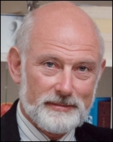June 29, 2011
By Kevin Burns

Dr. Bienenstock
Dr. John Bienenstock, one of Canada’s most recent inductees into the Medical Hall of Fame, knows what it is to be an alien. He’s been one.
Twice in fact. The first time was in 1939 when he was three years old. His parents managed to flee Budapest, where he was born. His father ran a successful business and owned various properties. Being Jewish put everything at risk and his parents managed to escape to England where they began, as best they could, to start all over again. None of the Bienenstock relatives they left behind in Hungary survived. “We have no family, tree,” says Bienenstock bluntly.
“To understand being an alien in Britain, as we were at the time, you should look at the work of George Mikes,” he advises. “He was another escapee from Hungary and wrote a very funny book about how to be a ‘perfect’ alien there.” I took his advice. Mikes writes:
The verb to naturalise clearly proves what the British think of you. Before you are admitted to British citizenship you are not even considered a natural human being. I looked up the word natural (na’tural) in the Pocket Oxford Dictionary (p.521); it says: Of or according to or provided by nature, physically existing, innate, instinctive, normal, not miraculous or spiritual or artificial or conventional … Note that before you obtain British citizenship, they simply doubt you are provided by nature…
If you are tired of not being provided by nature, not being physically existing and being miraculous and conventional at the same time, apply for British citizenship… [Y]ou must reorganise and revise your attitude to life. You must pretend that you are everything you are not and you must look down upon everything you are.” (How To Be An Alien – A Handbook for Beginners and More Advanced Pupils by George Mikes [1912-1987], published in 1946.)
Enrolled in one of the best public school’s (St Paul’s, London) Bienenstock flourished in his new environment. “My parents never spoke Hungarian to me at home. They knew they were never going to return there,” explains Bienenstock in a voice that reminds you of the best of the BBC.
He excelled at public school and went on to medical training where he discovered what was to become his life-long passion: finding answers to the questions surrounding symptoms and disease. This pursuit gave him a second experience of being an “alien” when, with a British passport, he took up residence in the United States to pursue research projects in rheumatology and immunology in Boston and Buffalo. He arrived in United States with a J-1 visa, intended to promote educational exchanges. The Vietnam War was at its height and his medical skills drew the attention of the U.S. military. Rather than risk the threatened draft he decided to move to the safety of Canada.
McMaster University had just been reorganised (1968-69) and its medical school was a natural fit. In the years that followed, the school’s development as one of Canada’s foremost centres for medical research is due in no small part to Dr Bienenstock’s tenure there.
In its citation, the Canadian Medical Hall of Fame identifies John Bienenstock’s skill in bringing different lines of inquiry together. “A true visionary, he pioneered and promoted prestigious multidisciplinary programs such as the Intestinal Disease Research Program involving immunology, neuroscience, virology, physiology and gastroenterology, and the McMaster Brain-Body Institute at St. Joseph`s Healthcare Hamilton whose aim is to integrate brain and neurosciences, medicine and psychiatry.”
Dr Bienenstock uses a different metaphor to describe his research interests. “One approach is to investigate ‘that one thing’ and to investigate a particular pathway for forty years because one things leads to another. And then you have guys like me who are, in essence, more butterfly like, going from one pretty flower in the garden to another, as it were. But there’s no difference in the outcome.”
One of those outcomes is the proliferation of commercials for products promoting the values of probiotic content. They owe a debt to his research. “The thing we are doing now is to look at probiotic organisms that are generally beneficial, bacteria mostly though not exclusively, and how they promote immune defence. And in turn, how these organisms interact with the nervous system,” explains Dr. Bienenstock. “I’ve had long standing interest in the fact that the immune system and the nervous system are not separate. They communicate with each other and they communicate all the time. Now we’ve come a long way out of the box to look at how they communicate ‘upstream’ to the brain and effect behaviour.”
The health claims of probiotic products and laboratory findings don’t always agree, but Bienenstock is confident. “It’s going to come together. Eventually. It’s just going to take time.”
As that medical research continues, Dr. John Bienenstock is also involved in another kind of investigation, one that will fill those gaps in his missing family tree, one that he knows goes back via Hungary to Holland in the 1700s. That kind of gap has its consequences. “There’s a void. And I’ve started to play in the archives to find out what happened to these people. In my research I’ve not met anyone who is an actual relative, yet. I don’t feel damaged by this but I do feel I have missed a lot.”
For the Canadian Medical Hall of Fame click here and to read Dr Bienenstock’s citation there, see this page.
Further information on Dr Bienenstock can be found at the McMaster University faculty page.
